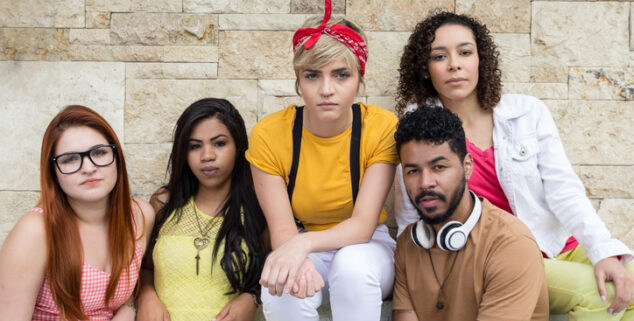Opinion
Youth in crisis: a call for compassionate action
 Image by Vergani_Fotografia.
Image by Vergani_Fotografia. Capitol Weekly welcomes Opinions on California public policy or politics. Please read our guidelines for opinion pieces before submitting an Op-Ed.
OPINION – I stand at the intersection of two identities: a child of immigrants and a scholar in the field of mental health and education equity. That vantage has shown me both narratives of perseverance—and the silent crisis unfolding among our youth.
On the surface, our communities appear to be “getting back to normal,” after the pandemic. But beneath that fragile veneer, youth, especially Latine youth, bear wounds that run deep.
A groundbreaking report from UC Riverside’s School of Medicine calls it what it is: a public health emergency. ICE raids, deportations, and workplace immigration sweeps are disrupting the emotional foundation of children in mixed-status families. The mere threat of separation breeds chronic anxiety, emotional dysregulation, and academic disengagement—harms too grave to ignore.
These are not abstract statistics. They are young lives strained by fear, sleep disrupted, routines abandoned, performance at school crumbling. Many children now live in persistent dread that the adults they rely on could vanish at a moment’s notice.
I recall in my own youth fearing police interactions and La Migra. I knew from an early age that my family was undocumented, and that the only thing separating us from family separation was our faith. But I also witnessed, painfully, that faith alone was not enough for everyone. In my teen years, I rose in leadership to speak out against the threat of Proposition 187, grounding my advocacy in the belief that we must dispel xenophobia, confront inequality, and fight for culturally competent mental health and education services for youth.
Today, the rhetoric may look different, but the scapegoating and xenophobia remain the same. What has changed are the tactics, wanton aggression, and abductions of community members carried out with impunity. Yet there is a silver lining: unlike before, we now have access to data and research that validate our lived experiences. And with that knowledge, we can fight back against the hate.
This future of fear compounds an already dire mental health crisis. Latine youth were already bearing the brunt of depression and anxiety long before 2025, but now, the trauma of enforcement policies is adding another devastating layer.
Yet amid these fractures, I see something more substantial than fear: resilience. Through the Chicano Latino Youth Leadership Project, I witness young people mobilizing to demand mental health support, equitable opportunities, and safe spaces to heal and grow.
Here’s the urgent truth: we cannot expect youth to simply “bounce back.” Their emotional landscapes have shifted. Healing must be intentional and holistic—through investments in trauma-informed care, culturally rooted counseling, and advocacy-driven programs that give young people a voice. But individual healing is not enough. Institutions, schools, healthcare systems, and policymakers, must be held accountable for dismantling the very conditions causing this harm.
Survival is not the benchmark our youth deserve. They are demanding more: spaces to thrive, to lead, and to imagine futures beyond trauma. Meeting that demand is not optional. The time for bold action is now.
Luisa Ortega, Ed.D., is the Inaugural Executive Director of the Chicano Latino Youth Leadership Project.
Want to see more stories like this? Sign up for The Roundup, the free daily newsletter about California politics from the editors of Capitol Weekly. Stay up to date on the news you need to know.
Sign up below, then look for a confirmation email in your inbox.

Leave a Reply